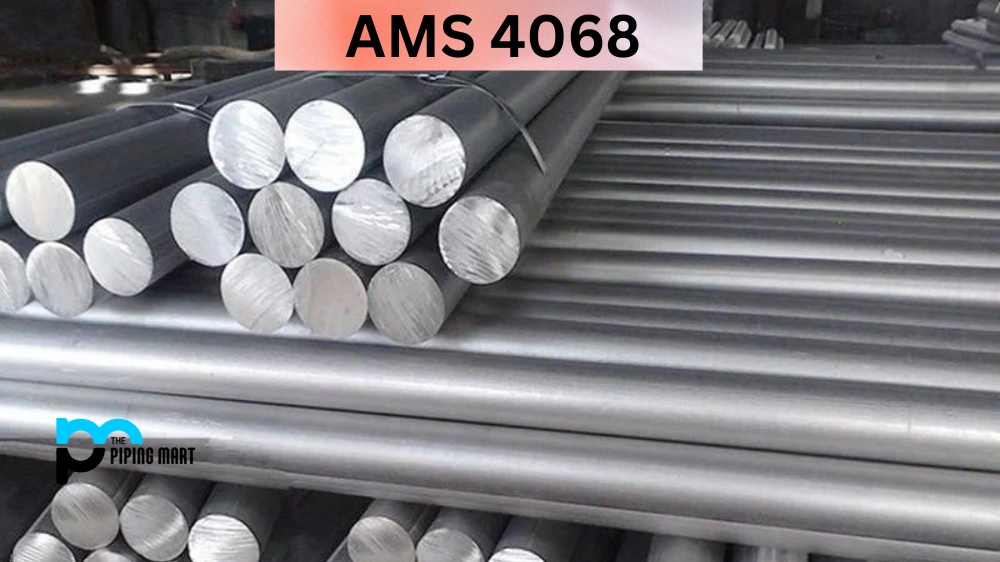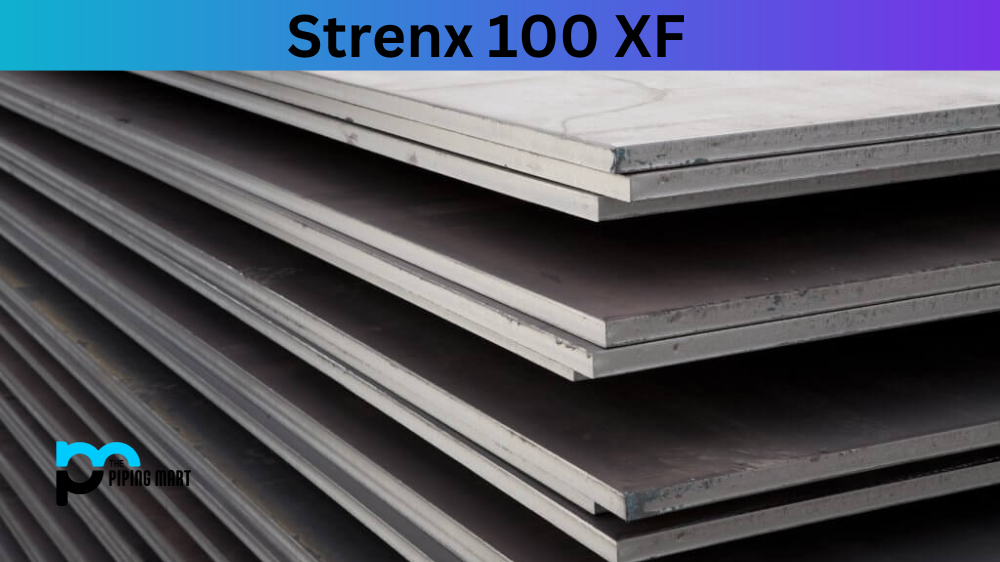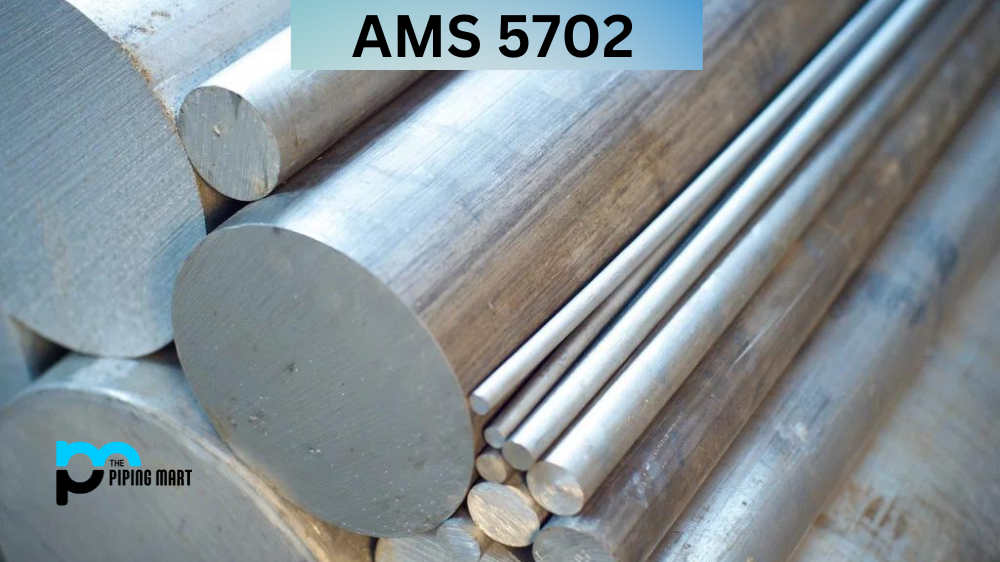AMS4068 is a steel specification developed by SAE International, formerly the Society of Automotive Engineers. The AMS stands for Aerospace Material Specifications, standards explicitly designed for aircraft and spacecraft applications. In this blog post, we’ll look in-depth at what makes AMS 4068 unique, including its composition, physical and mechanical properties, uses, and heat treatment processes.
What is AMS 4068?
AMS 4068 (also known as 2219 Aluminium Alloy) might sound unfamiliar, but it plays a crucial role in the aviation industry. With a tagline that reads “Steel, Corrosion-Resistant, Welding Wire, 14Cr – 16Ni – 0.70Cb (Nb), Low Carbon,” AMS 4068 is a specification for a particular type of steel wire that meets specific criteria for use as welding filler in aircraft parts. This type of steel wire must be highly corrosion-resistant and easy to work with during welding to ensure structural integrity in aircraft. So, the next time you’re flying and feel confident in the aircraft’s construction, you can thank AMS4068 for contributing to aviation safety.
AMS 4068 Composition
AMS 4068 has a similar composition to other high-strength, low-alloy steels but with a few key differences. Its primary alloying elements are chromium, molybdenum, and vanadium, which provide excellent strength and toughness. AMS 4068 also contains small amounts of carbon, manganese, phosphorus, sulfur, and silicon. The precise levels of each element are carefully controlled during the fabrication process to ensure the material meets the desired specifications.
| Element | Content (%) |
|---|---|
| Aluminum, Al | 93 |
| Copper, Cu | 6.3 |
| Manganese, Mn | 0.3 |
| Zirconium, Zr | 0.18 |
| Vanadium, V | 0.10 |
| Titanium, Ti | 0.06 |
AMS 4068 Physical Properties
One of the most notable physical properties of AMS 4068 is its density, which is around 7.85 g/cm³. This makes it slightly denser than other high-strength, low-alloy steels but still relatively lightweight compared to materials like aluminium. Another important physical property is its melting point, which is around 1420°C. This high melting point makes it ideal for high-temperature environments, such as jet engines and other aerospace applications.
| Properties | Metric | Imperial |
|---|---|---|
| Density | 2.6-2.8 g/cm3 | 0.0939- 0.101 lb/in3 |
| Melting point | 510°C | 950°F |
AMS 4068 Mechanical Properties
The most critical property of AMS 4068 is its strength. It has a minimum tensile strength of 160 ksi (1103 MPa) and a minimum yield strength of 140 ksi (965 MPa). Its high strength and toughness make it an ideal choice for components subjected to high stress and impact loads. Additionally, AMS 4068 has excellent fatigue resistance, which means it can withstand repeated loading cycles over an extended period without breaking or fracturing.
| Properties | Metric | Imperial |
|---|---|---|
| Tensile strength | 170 MPa | 24656 ksi |
| Yield strength | 76 MPa | 1022 ksi |
| Fatigue strength | 105 MPa | 15229 |
| Elastic modulus | 70-80 GPa | 10153-11603 ksi |
| Poisson’s ratio | 0.33 | 0.33 |
| Elongation | 18% | 18% |
AMS 4068 Equivalents
| AMS 4066 | ASTM B211 | ASTM B247 | MIL A-46808 | QQ A-367 |
| AMS 4068 | ASTM B221 | ASTM B316 | MIL A-8920 | QQ A-430 |
| ASTM B209 | ASTM B241 | MIL A-46118 | QQ A-250\30 | SAE J454 |
AMS 4068 Uses
AMS 4068 is widely used in aerospace to fabricate critical components such as gears, shafts, and turbine disks. Its high strength and toughness make it ideal for parts that must withstand high stress and loads, while its excellent fatigue resistance ensures they can withstand repeated use over time. Additionally, AMS 4068 is often used in oil and gas applications where strength and toughness are essential.
AMS 4068 Heat Treatment
After fabrication, AMS 4068 undergoes a specific heat treatment process to enhance strength and toughness. The exact process varies depending on the desired properties but typically involves heating to a specific temperature, holding for a set time, and then quenching in a cooling medium. This process, known as quenching and tempering, changes the steel’s microstructure and aligns the atoms, improving strength and toughness.
Conclusion:
In conclusion, AMS 4068 material is a high-strength, low-alloy steel explicitly developed for aerospace and other high-stress applications. Its unique composition and heat treatment processes provide outstanding strength, toughness, and fatigue resistance, making it ideal for critical components subjected to high loads and stress. Whether you’re an engineer working in aerospace, oil and gas, or other industry that requires high-strength, low-alloy steel, AMS 4068 is an excellent choice.

Meet Bhavesh, a seasoned blogger with a wealth of knowledge and experience. From metal products manufacturing to retail, Bhavesh has a diverse background in various industries and is dedicated to sharing his insights and expertise with readers.




